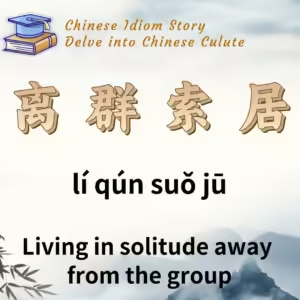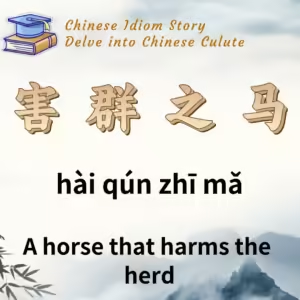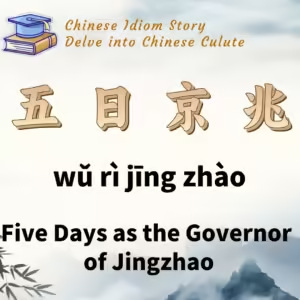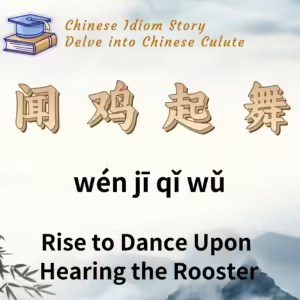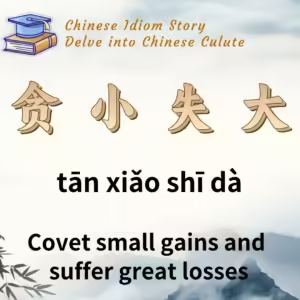
Chinese Idiom: 机不可失 (Ji Bu Ke Shi)
English Translation: Do not miss a critical opportunity
pīn yīn: jī bù kě shī
Idiom Meaning: This idiom refers to the idea that rare opportunities are fleeting and must be seized when they arise.
Historical Source: “旧唐书 · 李靖传” (Old Book of Tang: Biography of Li Jing).
Idiom Story:
During the early Tang Dynasty, the northern Eastern Turkic cavalry frequently harassed the borders, causing significant losses to the local populace and threatening the safety of the capital, Chang’an. In response, the imperial court dispatched General Li Jing and his subordinate Li Qun to confront the Eastern Turkic forces.
The Tang army engaged the Eastern Turkic troops in a fierce battle, forcing them to retreat in chaos. The Eastern Turkic leader, Kaghan Xieli, sought to buy time and feigned a desire for peace with Emperor Taizong of Tang. The emperor accepted the proposal and sent envoys to comfort the Turkic forces.
However, Li Jing recognized that this was a crucial moment: “机不可失” (the opportunity must not be missed). He decided to take advantage of the confusion and launched a surprise attack with 10,000 cavalry against the unprepared Eastern Turkic camp. The attack was devastating, leading to the disarray of the Turkic soldiers and the capture of Kaghan Xieli himself.
This decisive action by Li Jing not only secured a significant victory for the Tang Dynasty but also highlighted the importance of seizing opportunities in warfare and strategy. The phrase 机不可失 has since become a saying to encourage prompt action when opportunities present themselves.


